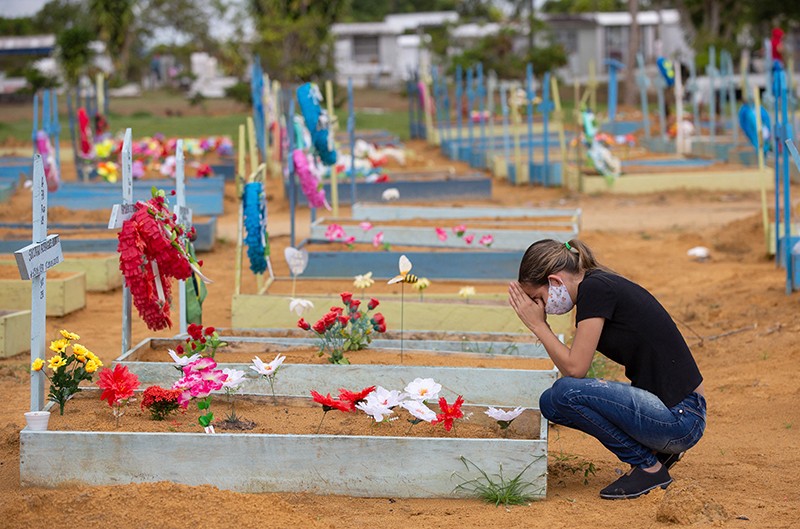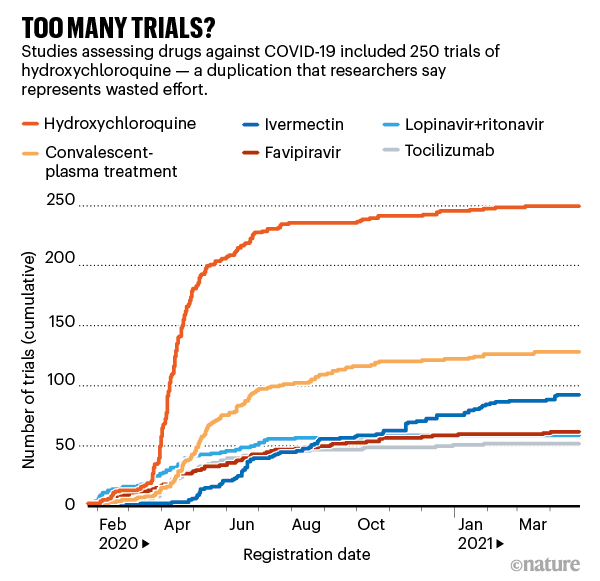Hello Nature readers, would you like to get this Briefing in your inbox free every day? Sign up here
If the World Health Organization (WHO) had given a bolder warning about the risks of COVID-19 — and nations had heeded its guidance — the pandemic might have been curtailed, finds a major independent review initiated by the WHO. The lengthy investigation identifies February 2020 as the month when — in a parallel universe — the devastating toll of the pandemic might have been prevented, had countries acted fast to limit the virus’s spread. It also lists concrete actions that could help to prevent a similar fate should another deadly pathogen emerge, and lays out a plan for how vaccines can reach low- and middle-income countries as soon as possible, to end the current crisis.
Nature | 5 min read
Reference: The Independent Panel for Pandemic Preparedness & Response report
Researchers have developed a strain of SARS-CoV-2 that triggers severe COVID-19 symptoms in mice. The advance could accelerate the creation of drugs and vaccines and help to illuminate the biology of the disease.
Nature | 1 min read
Reference: bioRxiv preprint
NASA’s OSIRIS-REx spacecraft has started its journey home, with rocks from the asteroid Bennu. OSIRIS-REx completed a nail-biting manoeuvre to scoop up the samples in October 2020. If all goes well, the spacecraft will drop off its cargo from Earth’s orbit after a 2-year, 2.2-billion-kilometre trip. Scientists are already enjoying the fruits of Japan’s Hayabusa2 mission to the asteroid Ryugu, which successfully returned its samples in December.
The New York Times | 5 min read
Read more: NASA ‘fist bumps’ an asteroid to reveal Solar
System’s secrets (Nature | 7 min read, from October)
Asteroid dust recovered from Japan’s daring Hayabusa2 mission (Nature | 4 min read, from December)
Features & opinion
Table of Contents
The pandemic stress-tested the way the world produces evidence — and revealed all the flaws. Among them was a proliferation of clinical trials, some too small or poorly designed to be of much use. And researchers struggled to synthesize the available evidence on drugs, masks and other key issues, never mind keep up with the outpouring of new results. There are bright spots: many researchers look with awe at the UK RECOVERY trial. It was kept simple — a short consent procedure and one outcome measure, death within 28 days of being randomly assigned to a treatment or control group. One clear take-home lesson, researchers say, is that countries need more large-scale national and international clinical-trial protocols sitting on the shelf, ready to fire up quickly when a pandemic strikes.
Nature | 14 min read
A newly invented prototype quantum hard drive could inch us closer to an optical telescope that is effectively as big as Earth. The hypothetical telescope would take advantage of a quantum effect demonstrated in the iconic double-slit experiment: one photon simultaneously passes through two slits like a wave, interfering with itself (as long as it’s left unobserved). Replace the two slits with two telescopes, and the result could offer mind-bogglingly high resolution. The key is having some way to record the wave-like states of incoming photons without disturbing them — such as the new memory device, which can store quantum information for more than one hour.
Quanta | 5 min read
Reference: Nature Communications paper
US regulators have just approved their 100th therapeutic antibody; in 2019, antibodies accounted for 9 of the 20 top therapeutics by sales in the United States. This boom has been driven by the wide-ranging abilities of monoclonal antibodies, designer versions of disease-fighting molecules from the immune system. Take a deep dive into the secrets of their success, especially for treating cancer.
Nature Reviews Drug Discovery | 15 min read
On Friday, I recommended this article, but it was behind a paywall. Thanks to all of you who let me know. It’s free to read now, for a few days.
If you want your product idea to succeed, one of the first steps is to interest potential investors — a tricky manoeuvre, especially for academic researchers who might have little experience making that kind of pitch. In this episode of the Nature Careers Podcast, five scientists and businesspeople discuss how to successfully commercialize your research.
Nature Careers Podcast | 19 min listen


